In the fiercely competitive world of Ivy League universities, making a choice like Harvard vs Princeton is not easy. If you are a prospective student aiming for the Ivies, then this article is for you – it provides an in-depth comparison of these prestigious institutions, covering academics, campus life, financial aspects, and career opportunities to help you make the best choice for 2024.
Overview of Harvard and Princeton

Despite their shared status of being Ivy league universities, Harvard and Princeton offer different academic, social, and cultural experiences for their students. Princeton has a distinct reputation for committing to undergraduate education while Harvard has a significantly larger graduate school population and options. For instance, Harvard Law, Harvard Medical, and Harvard Business School are some of the topmost in their fields while Princeton does not have dedicated professional schools for these fields. Princeton is also known for having a lower student-to-faculty ratio (5:1) when compared to Harvard (7:1).
Their locations also contribute to contrasting campus cultures and vibes. Princeton is located in, and named after, a town called Princeton in New Jersey. The university is central to the town and is known for its quieter, contained, suburban vibe. In contrast, Harvard is in Cambridge, another college town located in the fringes of the Boston metropolitan area. It enjoys a more urban ethos with numerous opportunities for networking, employment, and socialising in its vicinity.
Despite their varied academic focuses, both are world class research universities with an immense alumni network and famous alums who have made their marks in history.
Brief History and Background
The oldest institution of higher education in the United States, Harvard University (nicknamed Crimson) is a private Ivy League research university located in Cambridge, Massachusetts. Set up in 1636 as Harvard College under the authority of the Massachusetts colonial legislature, it is most renowned for its enduring history of innovation in higher education
With a reputation that rivals that of Oxford and Cambridge in the UK, Harvard has three main campuses: the main Cambridge campus centered on Harvard Yard, an adjoining campus across Charles River in the Allston neighborhood of Boston, and the medical campus in Boston’s Longwood Medical Area.
Ranked 3rd in the country by US News and World Report and 4th in the world by QS World University Ranking, Harvard is among the most selective and elite schools to get into. World-renowned for its faculty, state-of-the-art resources, and individualized instruction, the name is synonymous with limitless opportunities for its students.
Princeton University (nicknamed the Tigers) is a private, Ivy League research university situated in Princeton, New Jersey. With a history that can be traced back to 1746, it is one of the nine colonial colleges awarding degrees since before the American Revolution, and the fourth oldest institution of higher education in the United States.
Originally founded in Elizabeth, New Jersey, the College of New Jersey, as it was known earlier, moved to Newark in 1747 and then to Princeton in 1756, where it was renamed Princeton University.
A highly selective school, Princeton ranks first in the country according to U.S. News rankings and 25th in the world according to QS World University Rankings 2025. Known for its distinctive commitment to undergraduate education and service, Princeton has established itself as one of the foremost institutions in the world.
Key Statistics and Rankings
Here is a table comparing the key stats and ranks of the two universities.
| Harvard | Princeton | |
| Campus | Cambridge, MA | Princeton, NJ |
| U.S. News National Rank 2024 | 3 | 1 |
| QS World University Rank 2025 | 4 | 22 |
| Undergraduate Student Body | 7,063 | 5,590 |
| Graduate Student Body | ~ 18,200 | 3,212 |
| Percentage of International Enrollment | 26.8% | 14% |
| Average Acceptance Rate | 3% | 5.7% |
| Student to Faculty Ratio | 7:1 | 5:1 |
| Number of Undergraduate Programs | 3,700 courses in 50 undergraduate fields of study | 37 concentrations and over 50 minors |
| Number of Graduate Programs | 134 graduate and 32 professional degrees | 45 departments and programs |
| Research Expenditure | Over $1 billion | Over $400 million |
| Number of Division I Teams | 42 | 37 |
| Number of Clubs and Student Org.s | 450+ | 500+ |
| Colours | Crimson, White and Black | Princeton Orange and Black |
Harvard vs Princeton: Academic Comparison

As a student aspiring to get into the Ivies, one key area of comparison when it comes to Princeton vs. Harvard is academics. The undergraduate or graduate courses that they offer, their choices and flexibility, ranking, degrees and class sizes, academic calendars, research facilities, and budgets can become important factors in deciding which college is best suited for you.
Undergraduate Programs
Programme Focus: If you are looking at Princeton or Harvard specifically for undergraduate programs, then it is important to know that among all the Ivies, Princeton is the most known for its undergraduate education. With no major professional schools and only about 2,500 grad students, individualised attention for bachelor’s students is a given. In contrast, Harvard has a more comprehensive focus with equal emphasis placed on both undergraduate and graduate programs. By sheer numbers, Harvard has more grad students than undergrads, while the majority of Princeton’s population is composed of undergraduates.
If you are looking at areas of study, the general assumption is that Princeton is better suited for sciences and engineering (STEM-related) programs, while Harvard is world-renowned for its humanities, social sciences, and business-related programs. There is some truth to this assumption, to the extent that Princeton has one of the best undergraduate engineering programs in the world or that Harvard has a very strong emphasis on the liberal arts.
Beyond that, in order to keep up with the demands of today’s fluid and interdisciplinary world, both Harvard and Princeton offer top-notch programs across disciplines. For example, Princeton has some of the finest courses in Economics and Political Science while Harvard ranks first in the world when it comes to Biological Sciences. Ultimately, both universities strongly emphasise an interdisciplinary approach, bringing together core liberal arts strengths with the latest developments in science and technology.
Rank and Reputation: As Ivies, both Princeton and Harvard have retained their standing as two of the top universities in the world across centuries. Their names and reputations open varied doors for their graduates. For the rest of the world, the two universities are part of the same, top-notch, first-tier.
When looking specifically between these two universities, Princeton ranks 1st in the country while Harvard ranks 3rd, according to the metrics published by the U.S. News and World Report. At the global level, based on rankings published by QS World University Rankings, Harvard ranks 4th, while Princeton ranks 22nd for the year 2025.
When it comes to individual subject rankings, it becomes clear that Harvard ranks ahead of Princeton, ranking number 1 in the fields of Accounting and Finance, Arts and Humanities, Biological sciences, Business and management studies, Chemistry, Economics and econometrics, Environmental sciences, Law and legal studies, and Medicine (Source: QS Subject rankings). In comparison, Princeton is not number 1 in any specific field but is one of the top ten in over 15 different areas of study. It is also important to keep in mind that these rankings are based on a combined score of both the undergraduate and graduate departments, and Princeton, as a university, is committed to undergraduate education.
Popular Majors for Undergraduate Degrees:
| Harvard | Princeton |
|
|
Standardized Tests: When looking at application processes of Harvard University vs Princeton University, there is one significant difference. Harvard College (the undergraduate college of Harvard University) requires applicants to submit standardized test scores (SAT/ ACT). The average SAT score is around 1520 while the ACT scores range between 33 and 35.
In contrast, Princeton instituted a test-optional policy during the pandemic, and it continues to be test-optional today. It means you are not required to submit test scores with your application; however, if you submit them, they will be considered. The median SAT scores range between 1540 and 1580. A composite score of 34 – 35 is typically required if you are writing an ACT.
Core Curriculum: Both universities have General Education requirements for their undergraduate students. All students of Harvard College are required to complete four General Education courses, one from each category – Aesthetics and Culture; Ethics and Civics; History, Societies Individuals; and Science and Technology in Society. In addition, students must also complete the College’s requirements in the following areas – language, expository writing, distribution, and quantitative reasoning with data.
At Princeton, students in the Bachelor of Arts (A.B.) program are required to complete one or two courses in each of seven general areas: epistemology and cognition, ethical thought and moral values, historical analysis, literature and the arts, quantitative reasoning, laboratory science and technology, and social analysis. Moreover, all A.B. students must demonstrate proficiency in English composition through a one-semester writing seminar. They also must become proficient in another language.
Graduate Programs
Graduate Program Options: When compared to their undergraduate population, the number of grad students at Princeton is miniscule, with fewer than 3,300 students. In contrast, Harvard has a large graduate student population of over 18,000 students. The 12 graduate and professional schools at Harvard offer over 160 different degrees to choose from, providing an immense number of options for applicants. Princeton, on the other hand, is a primarily undergraduate school, offering around 50 graduate degrees.
Note: Princeton does not have a business school, law school or a medical school but is a top choice for pre-med or any of the pre-professional courses. In contrast, Harvard Law, Harvard Business School and Harvard Medical are some of the frontiers of their respective fields.
Admissions: Both universities are known for their highly competitive admissions, with students from all over the world applying. Their acceptance rates are some of the lowest in the world, ranging between 3 and 5%.
The minimum admission criteria in both universities include a valid baccalaureate degree from a recognised university (GPA varies with departments), a strong application form with a well-written Statement of Purpose (SOP), relevant work experience (for some courses), and English proficiency test scores (for international students). However, when it comes to standardized tests such as GRE or GMAT, Princeton is almost entirely test-optional, while a few master’s programs at Harvard, including the Harvard B-School, require you to submit GRE scores.
Top Graduate Programs:
| Harvard | Princeton |
|
|
Global Reputation: As mentioned earlier, both universities are world-renowned and create numerous opportunities for their graduates across continents. However, at the graduate level (master’s and doctoral studies), Harvard has significantly more options and a greater reputation when compared to Princeton. Be it the Graduate School of Arts and Sciences, the B-School, Harvard Law or Medicine, the Crimson is better known for graduate studies than its New Jersey competitor.
Constituent Schools
Harvard University is composed of the following schools
- Harvard College*
- Harvard John A. Paulson School of Engineering and Applied Sciences (SEAS)
- Harvard Kenneth C. Griffin Graduate School of Arts and Sciences (GSAS)
- Harvard School of Dental Medicine
- Harvard Business School
- Harvard Graduate School of Design
- Harvard Divinity School
- Harvard Graduate School of Education
- Harvard Kennedy School (of public policy)
- Harvard Law School
- Harvard Medical School
- Harvard T.H. Chan School of Public Health
- Harvard Extension School
- The Radcliffe Institute for Advanced Study
Harvard College is the undergraduate college of Harvard Universities. All the other schools are dedicated to graduate studies and research.
The different courses at Princeton University are offered by the following schools.
- The Undergraduate Program
- The Graduate School
- School of Architecture
- School of Engineering and Applied Science
- School of Public and International Affairs
Note that Princeton does not have a business school, law school or medical school but is a top choice for pre-med or any of the pre-professional courses.
Research Opportunities
Both Harvard and Princeton are world-leading R1 research universities that encourage their students to push the boundaries of their disciplines. Harvard spends over $1 billion on research every year, while Princeton has a research budget of over $400 million.
One of the premier research institutions in the world, Harvard University has always been at the forefront of scientific inquiry and innovation. The Faculty of Arts and Sciences alone house over 45 interdisciplinary research institutes and centres. In addition, the other professional schools have independent research programs. Harvard Law has over 30 research programs and centres, and Harvard Medical is known for its world-changing innovations. For example, here are some of the key discoveries from Harvard Medical School – Smallpox vaccine, Anesthesia, Electrocardiograph, Live donor liver transplant, Circadian clock, and the relationships between microbiome and immunotherapy.
Compared to Harvard’s extensive research culture, research at Princeton is concentrated around these key areas – engineering and applied science, humanities, natural sciences, and social sciences. The Princeton Plasma Physics Laboratory (PPPL), the Lewis-Sigler Institute for Integrative Genomics, and the Princeton Neuroscience Institute are just a few examples in a long list of cutting edge research institutions.
Therefore, when comparing research opportunities, both universities provide some of the finest and most cutting-edge facilities and opportunities. When choosing between Princeton vs Harvard, it boils down to specific areas of research interests and the corresponding facilities available in each of the universities.
Key Dates for Application
In this section, we will be looking at the key dates for application and admission into undergraduate programs (Fall semester) to get a sense of the timeline. Graduate schools have a different timeline. It is also recommended that you verify with the specific department / school that you are applying to, just to ensure they do not follow a different cycle.
| Important Dates | Harvard | Princeton |
| Early Action (EA) Deadline | November 1 (Restrictive EA) | November 1 (Single Choice) |
| Regular Admissions Deadline | January 1 | January 1 |
| EA Decision Posted in | Mid – December | Mid- December |
| Financial Aid Application Deadline (Regular Application) | February 1 | February 1 |
| Regular Decision Posted in | End of March | Late March |
| Deadline to accept the offer of Regular admission | Early May | May 1 |
| Average Acceptance Rate | 3% | 5.7% |
Admission Options to be considered in the Harvard Princeton debate:
- Harvard’s Early Action (EA) pathway is called Restrictive EA, while Princeton’s is called Single Choice EA. Essentially, they are both restrictive in nature wherein you may not apply to an early program at any other private college or university within the United States.
- Both universities do not have the binding Early Decision college admissions pathway.
- Both Princeton and Harvard accept either the Coalition Application or the Common Application. However, the university-specific essay must be completed.
- Harvard’s application fee is $85 while Princeton requires $75.
Semester vs Quarter
Both Harvard and Princeton follow a semester system, with the main academic calendar spreading through Fall (August/ September – December) and Spring (January – April/ May). Both universities also have a shorter summer term during which some academic activities take place.
Harvard vs Princeton: Campus Life and Environment

Looking beyond academics, there are a few more factors that can make you prefer Harvard to Princeton or the other way around. The city, campus vibe, facilities available, and other aspects of student life are all factors that are to be taken into consideration.
Location
Princeton University is located in the university town of Princeton in New Jersey (about 50 miles from New York City) while Harvard is located in Cambridge Massachusetts, a mere 6 miles from the city of Boston. With both towns located in the northeast, they experience similar climatic conditions, with Cambridge being slightly colder than Princeton.
A college town, Princeton is a suburban place with its culture revolving around the eponymous university, providing a more traditional college experience. In contrast, Cambridge is part of the larger Boston metropolitan area. Hence, the bustle of the city and its population of about 4.9 million seeps into Harvard University life. The university is also located near the renowned Massachusetts Institute of Technology, Boston College, and Boston University.
The small, quaint, picturesque, suburban, and relatively quieter ethos of Princeton is a great fit for students who want to study away from the bustle of large cities. The cost of living is also lower when compared to the Boston area. However, Cambridge provides many more opportunities for internships, socialising, networking and other cultural experiences.
Campus Size and Facilities
When comparing total holdings, Harvard owns around 5,000 acres in the greater Boston area, while Princeton owns over 2,600 acres in New Jersey. However, the main Harvard campus, which grew around Harvard Yard, is around 209 acres and houses academic and research buildings. The central Princeton campus consists of about 200 buildings in 600 acres of university land.
Including the Arnold Arboretum, the Carpenter Center for the Visual Arts, the Collection of Historical Scientific Instruments, the Harvard Art Museums and the Harvard Forest, the university provides numerous extensive amenities for its students. The Harvard Library is the largest academic and private library in the world. Campus life also includes common rooms, study spaces, dining halls, verdant lawns, and athletic facilities.
Similarly, the Princeton campus is home to the University Art Museum, Carnegie Lake, the FitzRandolph Observatory, the McCarter Theatre centre, and numerous libraries, dining halls, common rooms, study areas, lawns, and sports centres.
Both universities provide rich and varied experiences, for students to explore interests and passions beyond academics.
Student Activities and Organizations
When it comes to extracurricular activities, both universities have an extensive culture of enabling students to explore other interests beyond academics.
Athletics:
Harvard is home to 42 Division I intercollegiate sports teams that participate in the NCAA and the Ivy League in stunning displays of Crimson pride. Nearly 80% of Harvard undergrad students are involved in some kind of athletics. In addition to the varsity level, the university also has a longstanding tradition of intramural sports that allow students to compete with one another within the university. First-years compete for the Yard Cup, and upperclassmen chase the Straus Cup. Furthermore, Harvard students can also take part in club sports and the numerous recreational fitness options available on campus.
Princeton has one of the largest and the most successful athletic programs in the NCAA Division I and the Ivy League. The Princeton “Tigers” is composed of 37 varsity men and women’s teams, made up of about 18% of the university’s undergraduate population. In addition, as a Tiger, you can join any of the 39 sports clubs available on campus.
Student clubs and organizations:
Besides sports, Princeton university has over 500 student organisations, run by students. The John H. Pace Jr Centre for Civic Engagement also offers a number of opportunities for students to get involved in the local Princeton community and beyond. The Undergraduate Student Government at Princeton also enables students to sharpen their leadership skills and expand their horizons.
Similarly, Harvard houses over 450 clubs that can be divided into 13 categories ranging from Academic and pre-professional, Creative and Performing Arts, to Public Service and Religion and Spirituality. The university also conducts a Student Organization Fair, an annual tradition that takes place the first week of class, for the freshmen to get to know options available.
Housing and Accommodation
Harvard: For undergraduate students at Harvard College, accommodation is provided in dorms with shared suites adjacent to Harvard Yard with a majority of meals eaten in Annenberg Hall. First year students are required to live on campus. Divided into “The Houses”, they serve as the foundation for the undergraduate experience at Harvard College. Ninety-eight percent of all undergraduates live in one of the twelve residential Houses.
Graduate students have access to housing options on campus in Harvard-owned properties or off campus in the Cambridge and Boston area. Harvard University Housing (HUH) is the office that offers housing and real estate services to the University’s graduate students, faculty, and employees. The university owns about 3,000 units ranging from studios to four bedrooms, all located conveniently near Harvard’s graduate and professional schools.
Princeton: Princeton has 7 residential colleges for undergraduate students and dedicated graduate housing as well. While all undergrads are offered only dorms, there are a limited number of apartment options for graduate students with families.
First and second year students are required to live in one of the residence halls after which they are allowed to live off campus. Despite this provision, around 98% of Princeton undergraduates and around 70% of graduate students choose to live on campus. The residential college system at Princeton has been designed to support and advise students in an individualistic manner through dedicated staff.
Harvard vs Princeton: Financial Aspects

Another major point of discussion when it comes to Princeton vs Harvard is the cost involved. The cost of attendance (tuition), additional expenses such as books, student fees, insurance and housing must be taken into account before making a choice.
At the outset, both are privately owned universities and, therefore, do not offer any subsidised rates for local residents. Moreover, the general cost of tuition is higher when compared to public universities. That said, both universities are known for their highly inclusive financial aid programs.
| Annual Rates | Harvard | Princeton |
| Tuition (Bachelor’s) | ~ $57,000 | $62,400 |
| Average Tuition (Master’s) | $55,000 – $64,000 (does not include professional programs like law and medicine) | $59,710 |
| MBA Tuition | $76,410 | N.A. |
| Housing | $12,922 | $11,910 |
| Types of Financial Aid | 1. Scholarships & Grants 2. Outside Awards 3. Student Employment 4. Loans(only need-based) |
1. Federal Pell Grant (FAFSA) 2. Federal Supplemental Educational Opportunity Grant (FSEOG) 3. New Jersey Tuition Aid Grant (TAG) 4. Other State Grants 5. Princeton University Grant 6. Outside Scholarships 7. Student Employment 8. Federal and Institutional Loans |
| International student scholarships |
|
|
| Estimated average grant for an aid student | $67,585 | $70,500 |
| Admission Decisions | Completely need blind | Completely need blind |
| Demonstrated Need Cover | 100% (Families with income less than $85,000 will not have to pay tuition) | 100% (Families with income less than $160,000 will not have to pay tuition) |
Here are a few important points to be kept in mind.
- As private Ivy League Universities, the tuition rates at both universities are much higher compared to other private or public universities. That said, both have numerous scholarship and financial aid options. It is important to research specific scholarship options for the program/ department that you are applying for.
- The tuition fees are average figures, calculated for a typical academic year of 9 months. The fee will be higher should you choose to take extra courses in the summer months.
- The tuition fee amounts in the table are indicative of only the cost of attendance. It does not include books, student health insurance and other expenses. Student insurance alone can cost between $3,000 – $7,000 a year.
- Both universities emphasise need-based scholarships. Merit scholarships are typically funded by external sources. Neither university offers athletic scholarships.
- The financial need requirements of international students are met in the same way as it is for domestic students.
Harvard vs Princeton: Career Prospects and Alumni Network

In this section, let us compare the post-graduation opportunities available to the students of Harvard and Princeton. Considering their reputation, the most common post-graduation problem that Princeton and Harvard graduates face is that of too many options. The academic rigour and culture of research in these two universities create a pedigree that recruiters often compete to get for their organisations.
Employment Rates
As one of the top colleges for graduate employment in the US, according to the Times Higher Education ranking, Harvard, ranked 4th in the US, has an employability rate of 91 – 96%, depending on the school, within six months of graduation. By the same metric, Princeton stands right behind Harvard, ranking 5th in the country for graduate employability. A diploma from the Ivies is the closest one can come to guaranteed competitive employment, irrespective of the discipline.
Notable Alumni
Both universities have vibrant alumni associations that extend worldwide. Harvard’s alumni network supports over 400,000 people who bleed crimson in over 200 countries while Princeton has over 75,000 living alums across the globe.
If you are comparing Nobel Laureates as a mark of academic excellence, Harvard is associated with over 160 Nobel Prize Winners (over 50 of them currently associated with the university) while about 80 are associated with Princeton.
Other Notable Alumni from Harvard
- Barack Obama, Former President of the United States
- Mark Zuckerberg, CEO, Meta
- Bill Gates, Founder, Microsoft
- John F Kennedy, Former President of the United States
- Ratan Tata, Industrialist and philanthropist
- Robert Oppenheimer, Physicist
- Helen Keller, Author and activist
- Ruth Bader Ginsberg, Associate Justice of the Supreme Court
Notable Alums of Princeton
- Aaron Burr, Politician, businessman and one of the founding fathers of the US
- Richard Feynman, Theoretical physicist
- Jeff Bezos, CEO, Amazon
- Michelle Obama, lawyer, author and former first lady of the United States
- Woodrow Wilson, Former president of the United States
- F Scott Fitzgerald, Novelist
- Alan Turing, Mathematician and cryptoanalyst
- Sonia Sotomayor, Associate Justice of the Supreme Court
- John Forbes Nash Jr, Mathematician
Career Services
Both universities have extensive Career Centers that assist their students to gain practical experience, build networks and communicate their aptitudes and skill sets to prospective employers. They also play an instrumental role in building leadership skills and specialised skills that are essential to a workplace.
In both universities, the career centre connects students to internship opportunities and prospective employers through seminars, job fairs, and numerous other on-campus events.
Princeton vs Harvard: Conclusion

Choosing between Harvard and Princeton involves considering various factors such as academic strengths, campus life, financial implications, and career prospects. Both universities offer unparalleled opportunities, but your decision should align with your personal and professional goals.
Summing up the differences
- With both universities belonging to the prestigious Ivy League group, they share a similar standing and a global reputation of being two of the top most universities in the world.
- Princeton is ranked higher when it comes to undergraduate education while Harvard is better renowned for its grad schools. Harvard College, the undergraduate school of the university is particularly known for its highly competitive admissions.
- Both universities are especially known for having some of the lowest acceptance rates, making their admissions some of the most selective and competitive in the world.
- Princeton’s commitment to undergraduate education also means that the university has more bachelors’ than graduate students. Even then, the total student body of Princeton is significantly smaller than Harvard’s, despite the extensive campus. Harvard, in contrast, has an immense graduate student population.
- Princeton is the only Ivy that does not have dedicated graduate level professional schools for law, medicine, or business and management. On the other hand, Harvard’s professional schools are some of the best in the world.
- Looking at locations, Princeton is decidedly more suburban and contained when compared to the urban Boston-Cambridge neighbourhood in Massachusetts. However, since both are situated in the northeastern part of the USA, they have relatively similar climates.
- Both universities offer varied scholarships and housing options for their students. The key difference is that Harvard requires freshmen to stay on campus while Princeton requires both first and second years to live in on-campus housing.
- While both are world-class research universities, Harvard, due to its extensive graduate programs, has a much higher research budget when compared to Princeton.
While these can be factored into your decision, the ultimate call rests on whether the course curriculum and the learning outcomes meet your career plans. The most significant part of your research is to compare courses, syllabi, electives, faculty and research facilities of your preferred degree program, speak to current students, and then decide depending on which school better suits your needs.
We understand that becoming an international student can be very thrilling, but the prep and paperwork of it all can get overwhelming. The easiest way to reduce your stress is to sign up with TC Global.
We simplify international education, learning, and mobility through connecting students, universities, and a global community on a single platform where there are over 1000+ education providers and over 80,000+ courses.
Our platform enables students to study anywhere in the world in just a few steps. From search and discovery and finding the right course fit for you, to applications, visas and departure – we see you through it all.
To move forward with us, download our app or visit tcglobal.com and sign in to create an account on our student platform and onboard with us in quick, easy steps.! 🚀
Then simply set up a visit Calendly.com/tcglobal to pick a Relationships Team closest to you and choose a slot to meet with a Relationship Member. Be it Harvard vs Princeton or any such debates, our experts will be with you every step of the way to help you decide.
Let’s shape your future together.
FAQs
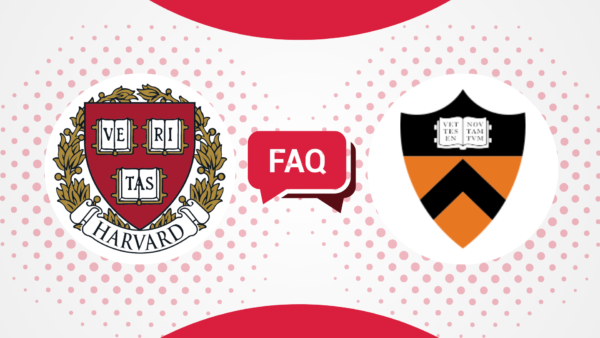
Is Harvard No 1 university?
One of the foremost universities in the world, Harvard ranks 4th in the world according to the metrics published by QS World University rankings 2025, after MIT, Imperial College London, and the University of Oxford. It ranks 3rd in the country after Princeton and MIT according to US News and World Report. Harvard also ranks world number 1 in various subject rankings.
Is Princeton cheaper than Harvard?
The tuition fees of the two universities is comparable, costing anywhere between $55,000 and $65,000 a year for a typical undergraduate program. Adding living and additional expenses, the typical sticker price of these universities is around $70,000. However, they are both known for their extensive financial aid and scholarship programs. That said, the cost of living in Princeton NJ is relatively cheaper when compared to the Cambridge-Boston area of Massachusetts.
Is Princeton better than Harvard?
The answer varies depending on the program and the department you are looking for. But, in general, Princeton is considered better for undergraduate programs while Harvard is ranked higher for its grad schools.
Is it harder to get into Harvard or Princeton?
Both universities are known for their highly selective and competitive admission processes. They have some of the lowest acceptance rates in the world, ranging typically between 3 and 5%.
What is the best Ivy League School?
The Ivy League is a group of 8 privately owned institutions in Northeastern USA that has the reputation of being some of the best universities in the world. Among the 8, Harvard is ranked highly in almost all subjects while Princeton and Yale stand right behind Harvard. Princeton is ranked number 1 when it comes to undergraduate education.
Is MIT better than Harvard?
MIT is world renowned for its contributions to science, technology and innovation while Harvard has a more comprehensive reputation, known for multiple fields of study, across disciplines.
Is Harvard public or private?
Harvard and all the other Ivies are privately owned institutions for higher education.
How much do I need to score on the SAT/ ACT to be admitted?
The average SAT score is 1520, and the composite ACT score is 33-35, which is required to be admitted to Harvard College. The median SAT score at Princeton is between 1540 and 1580 and the ACT scores are the same as Harvard’s. The key difference is that Harvard College requires students to submit scores while Princeton is test-optional.
What are my scholarship options?
Both universities are known for their numerous scholarship and financial aid options. They are committed to providing need-based aid for both domestic and international students alike, and do not have many merit scholarship options. They cover 100% of demonstrated need and have a need blind admission policy. It is also important to look into scholarship options of specific departments or reach out to the experts at TC Global for assistance.
You May Also Like
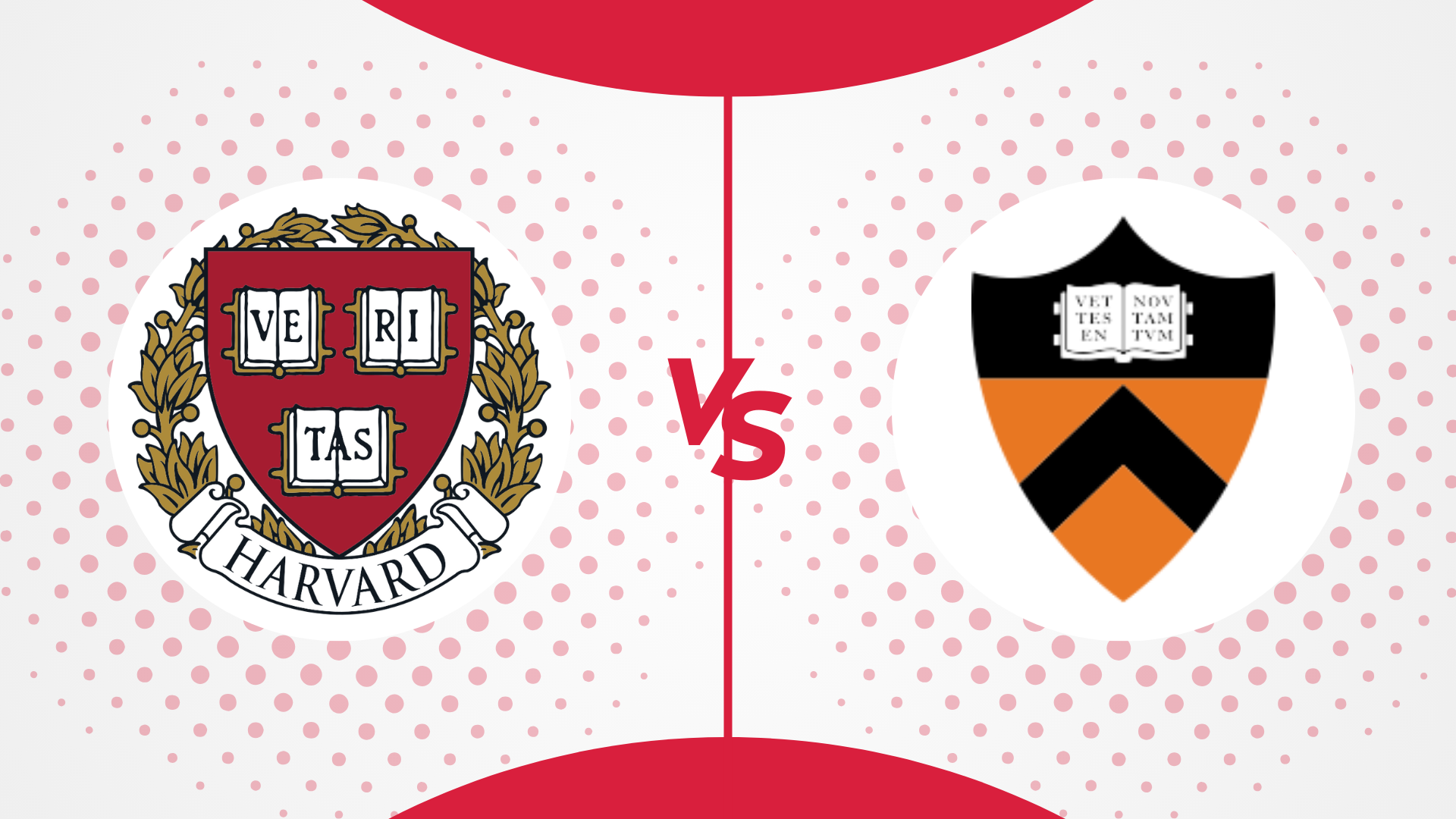
Compare more universities in USA
-

Purdue vs UIUC: How Do They Compare in 2025?
December 16, 2024 -
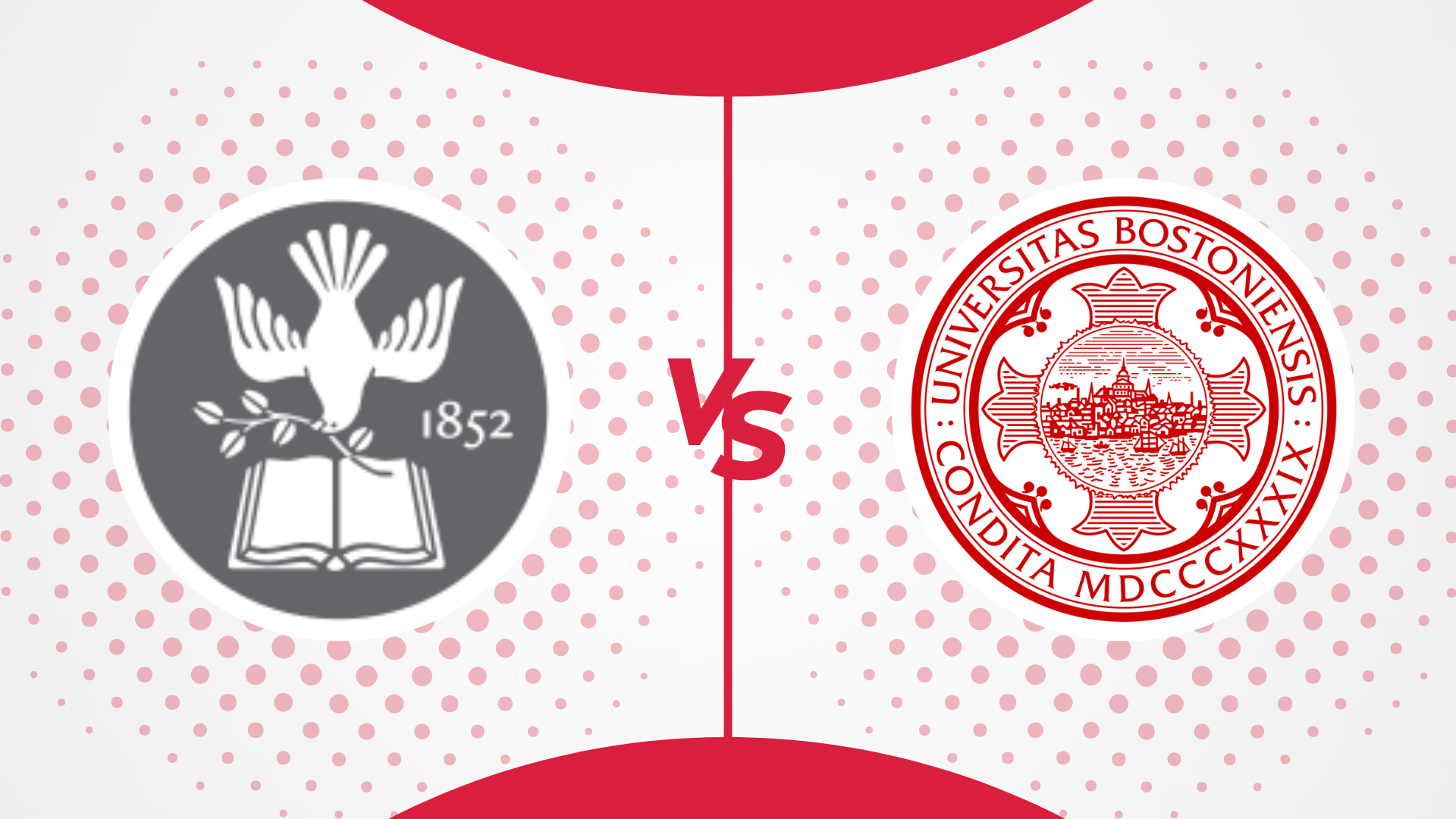
Tufts vs BU: How Do They Compare in 2025?
December 16, 2024 -

UIUC vs Georgia Tech: How Do They Compare in 2025?
December 3, 2024 -

Georgia Tech vs UT Austin: How Do They Compare? [2025]
September 24, 2024 -

UC Davis vs UC Irvine: How Do They Compare in 2024
September 10, 2024 -
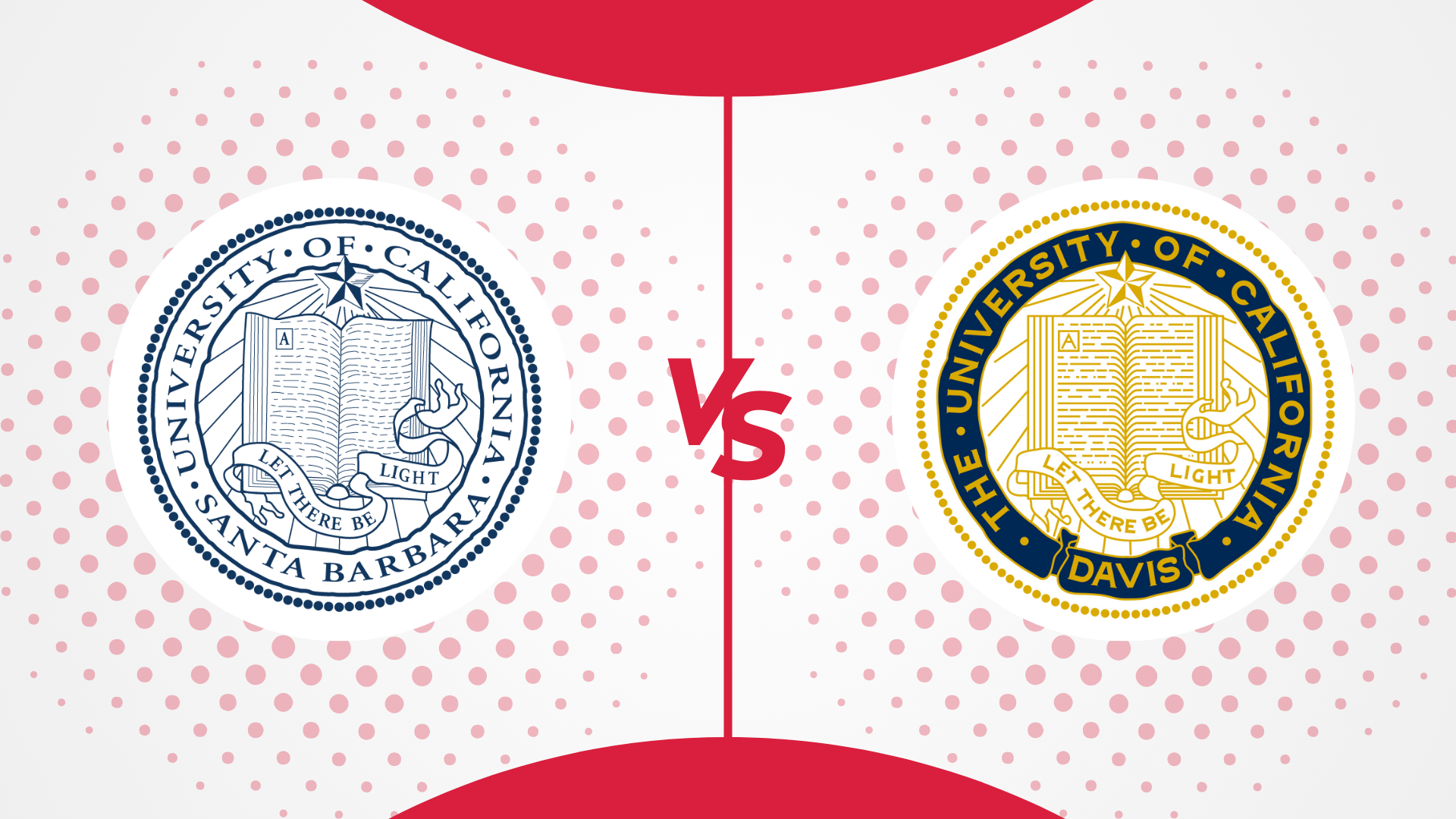
UC Santa Barbara vs UC Davis: How Do They Compare? [2024]
August 30, 2024 -
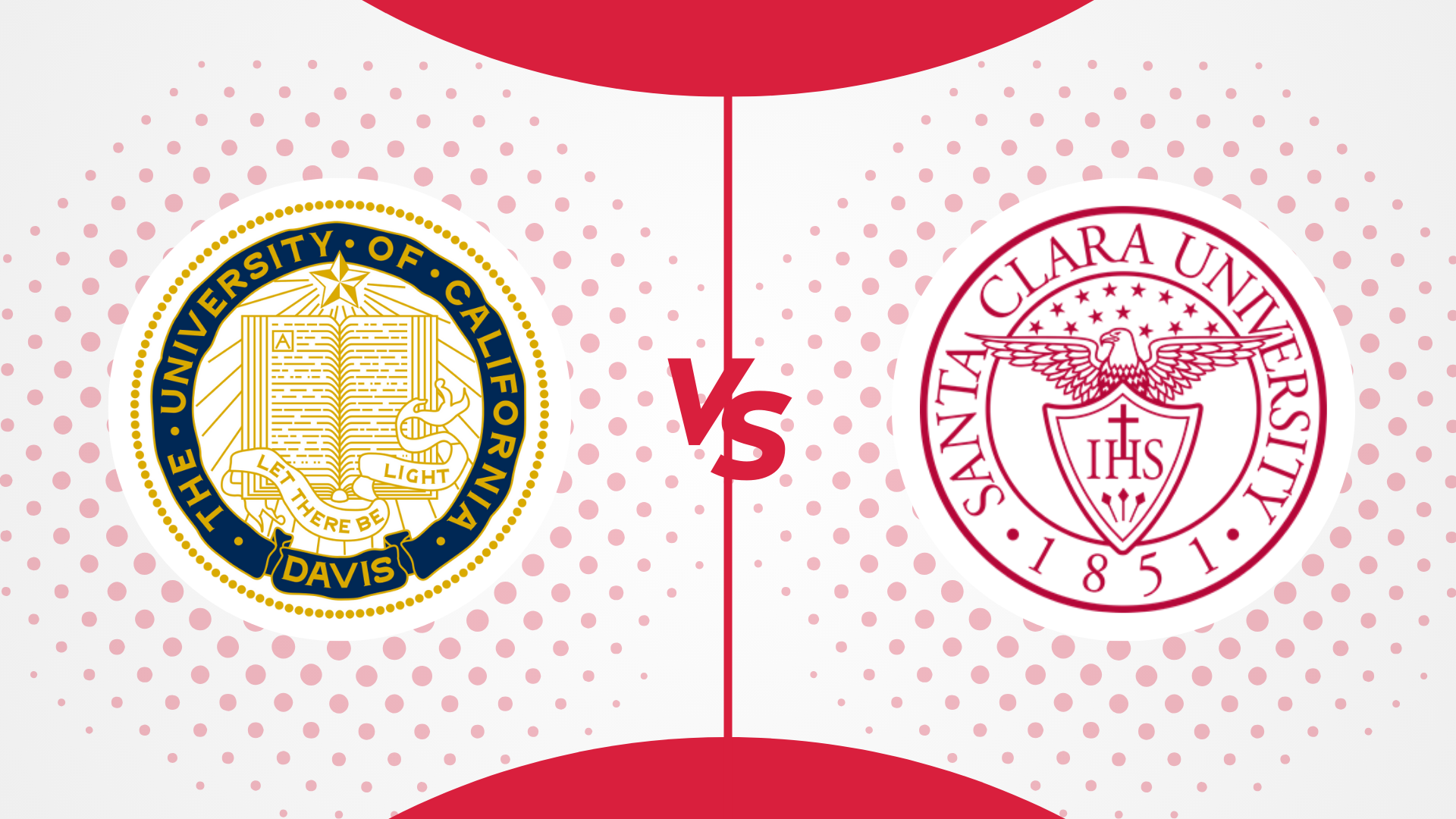
UC Davis vs Santa Clara University: How Do They Compare? [2024]
August 23, 2024 -

University of Chicago vs Northwestern University: How Do They Compare
August 20, 2024 -

Georgia Tech vs MIT: How Do They Compare? [2024]
August 7, 2024 -

Caltech vs MIT: How Do They Compare [2024]
August 2, 2024 -

MIT vs Harvard: How Do They Compare [2024]
July 27, 2024 -

Cornell vs Harvard: How Do They Compare? [2024]
July 27, 2024 -

Yale vs Harvard: How Do They Compare [2024]
July 22, 2024 -
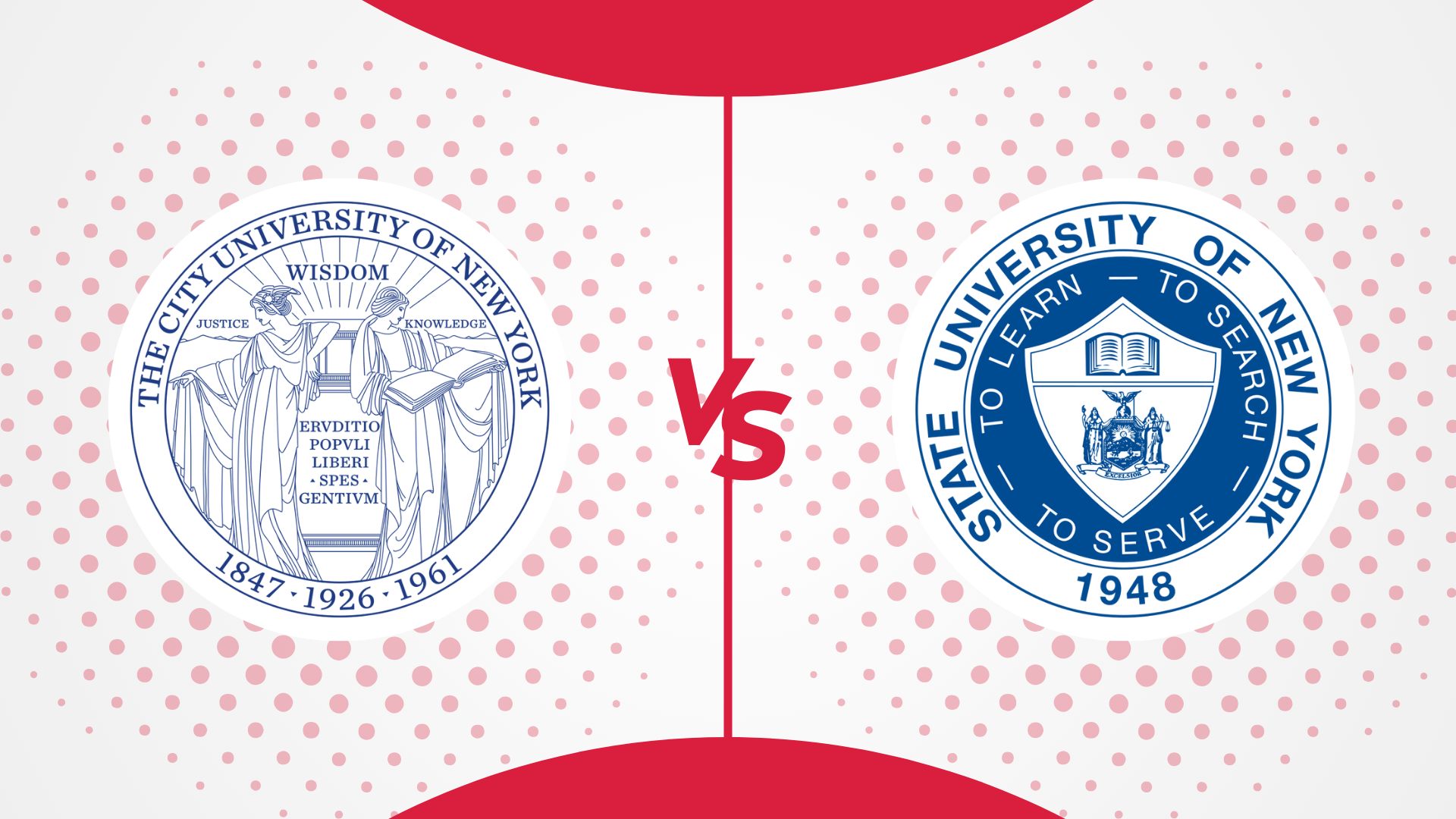
CUNY vs SUNY: Which One is For You in 2024
July 9, 2024 -
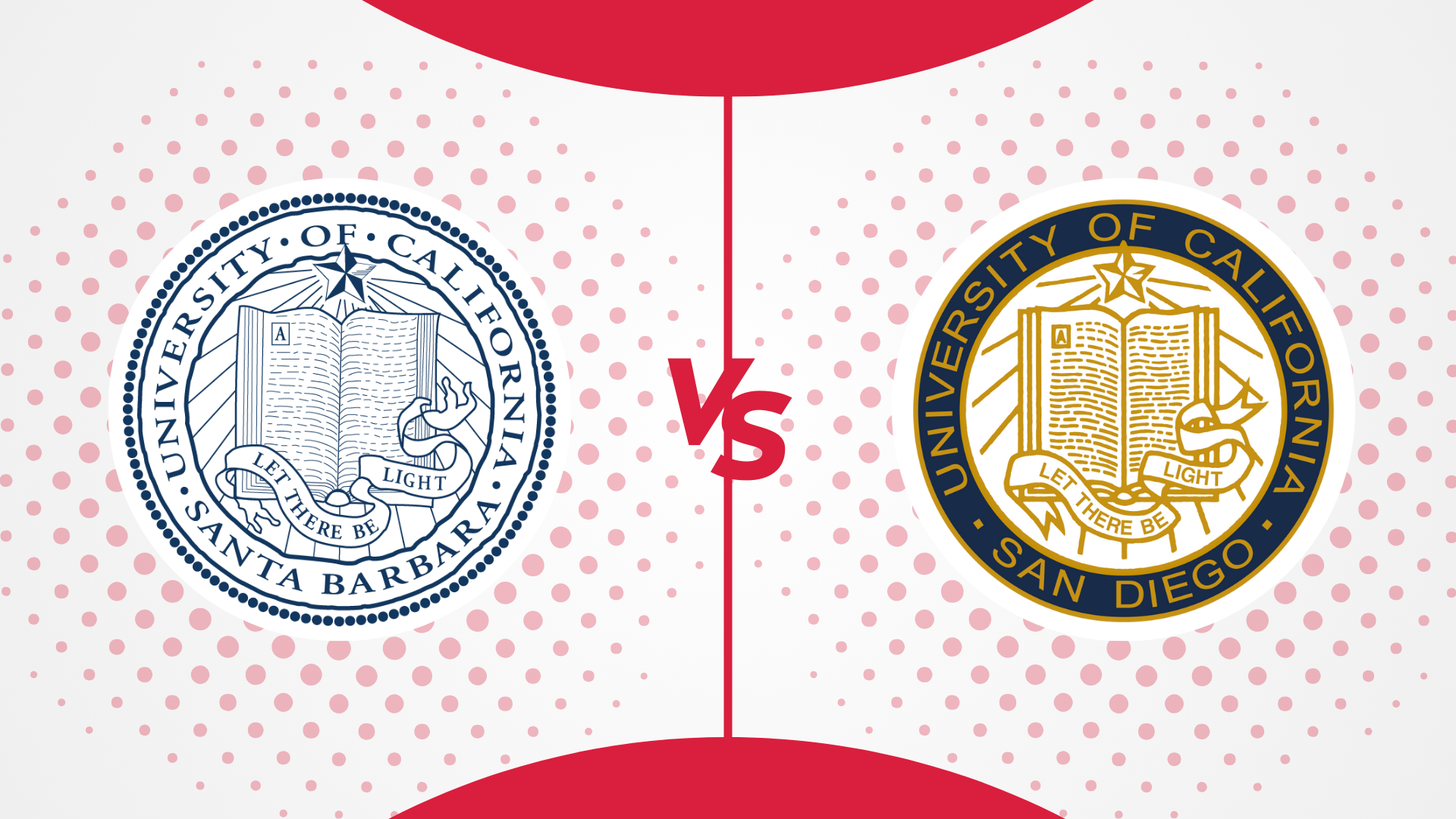
UCSD VS UCSB: Which One is Better For You in 2024
July 9, 2024 -
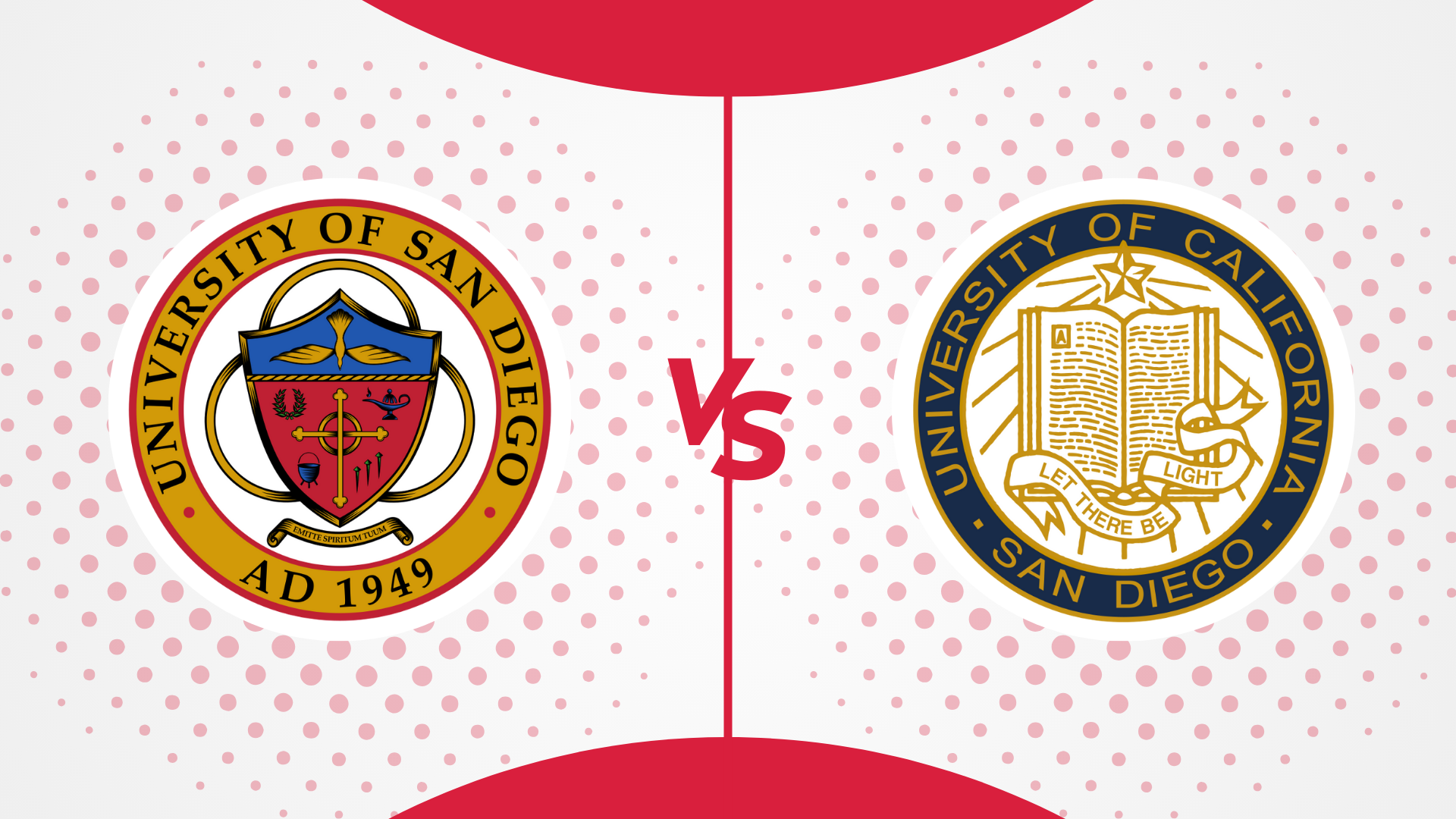
USD vs UCSD: Which one should you choose in 2024?
July 9, 2024 -
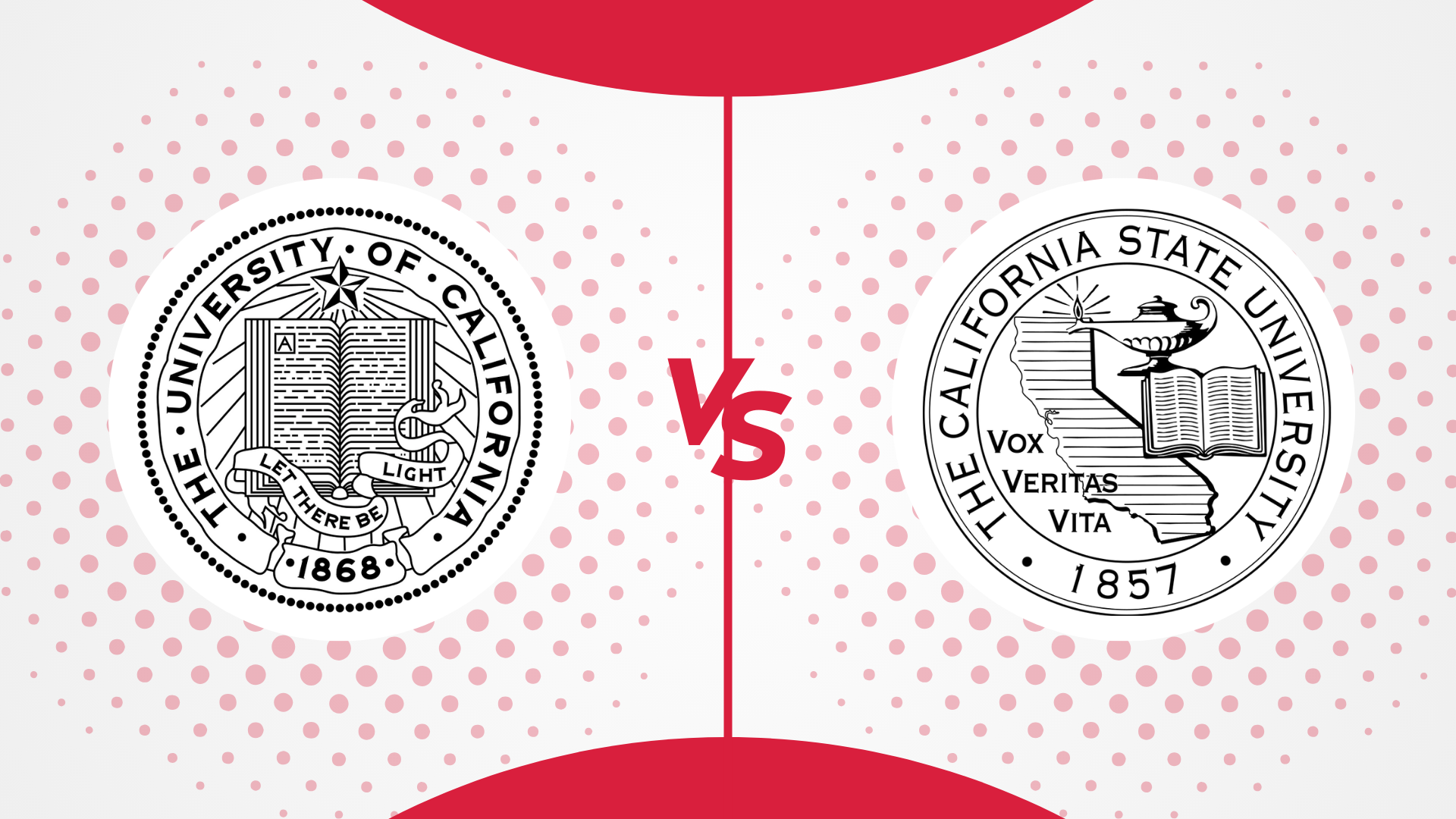
UC vs CSU: Which One is Better in 2024?
July 9, 2024 -
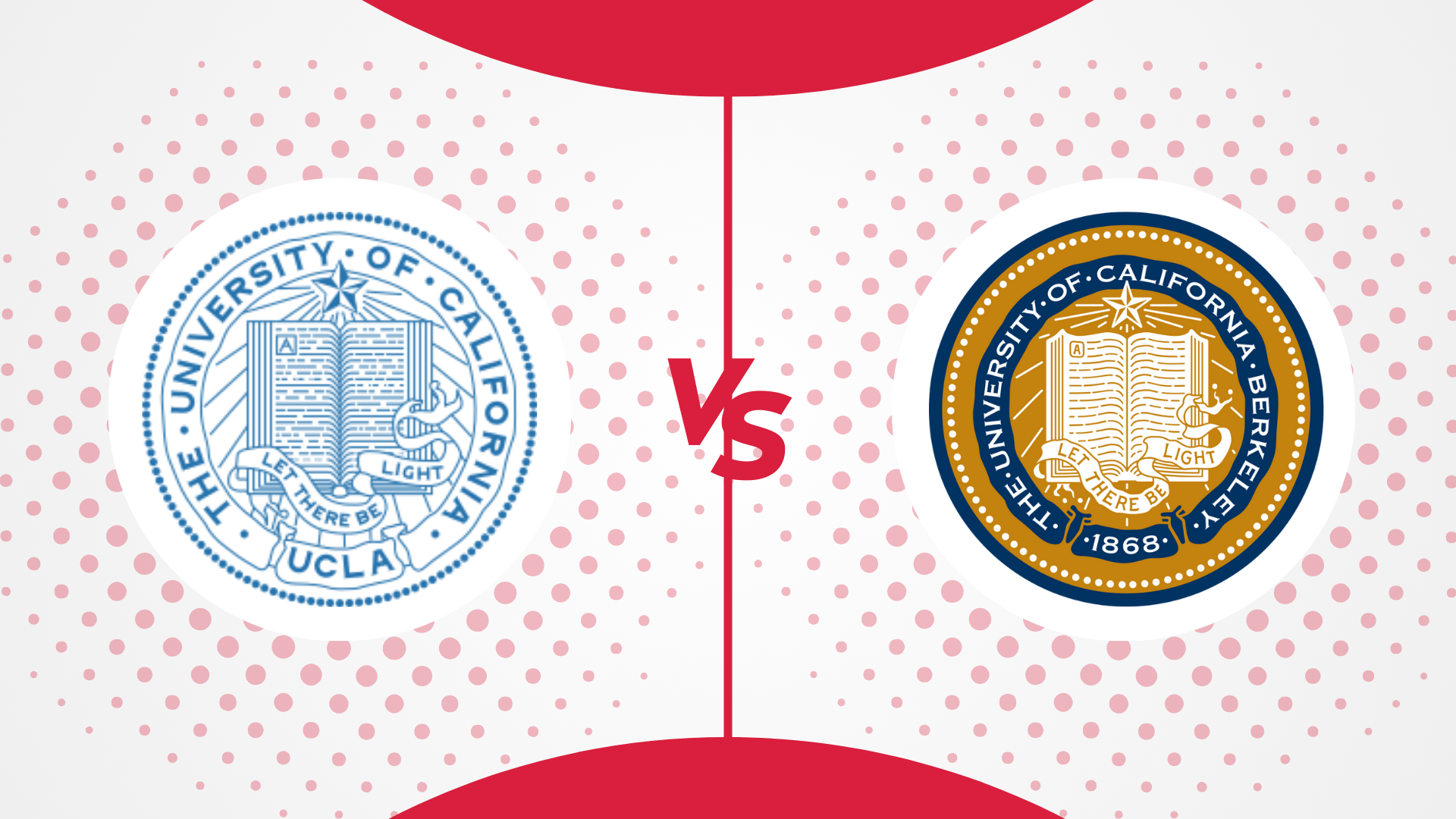
UCLA vs UC Berkeley: Which One is Best in 2024
July 9, 2024 -

University of Arizona vs Arizona State University: Which One is Better in 2024
July 9, 2024 -

Penn State vs UPenn: Which is Better for International Students in 2024
July 9, 2024 -

Northeastern vs Northwestern: Which One is Best in 2024
July 9, 2024 -

Northeastern University vs Purdue University – Which One is Better in 2024?
July 9, 2024 -

Boston College vs Boston University: Which One is the Best in 2024?
July 9, 2024 -

LSU vs UCLA: Which Is Better For You In 2024?
July 8, 2024 -

NYU vs Boston University: Which One Is Better For You In 2024
July 8, 2024 -

USC vs UCLA: Which One Is Better For You In 2024?
July 5, 2024 -
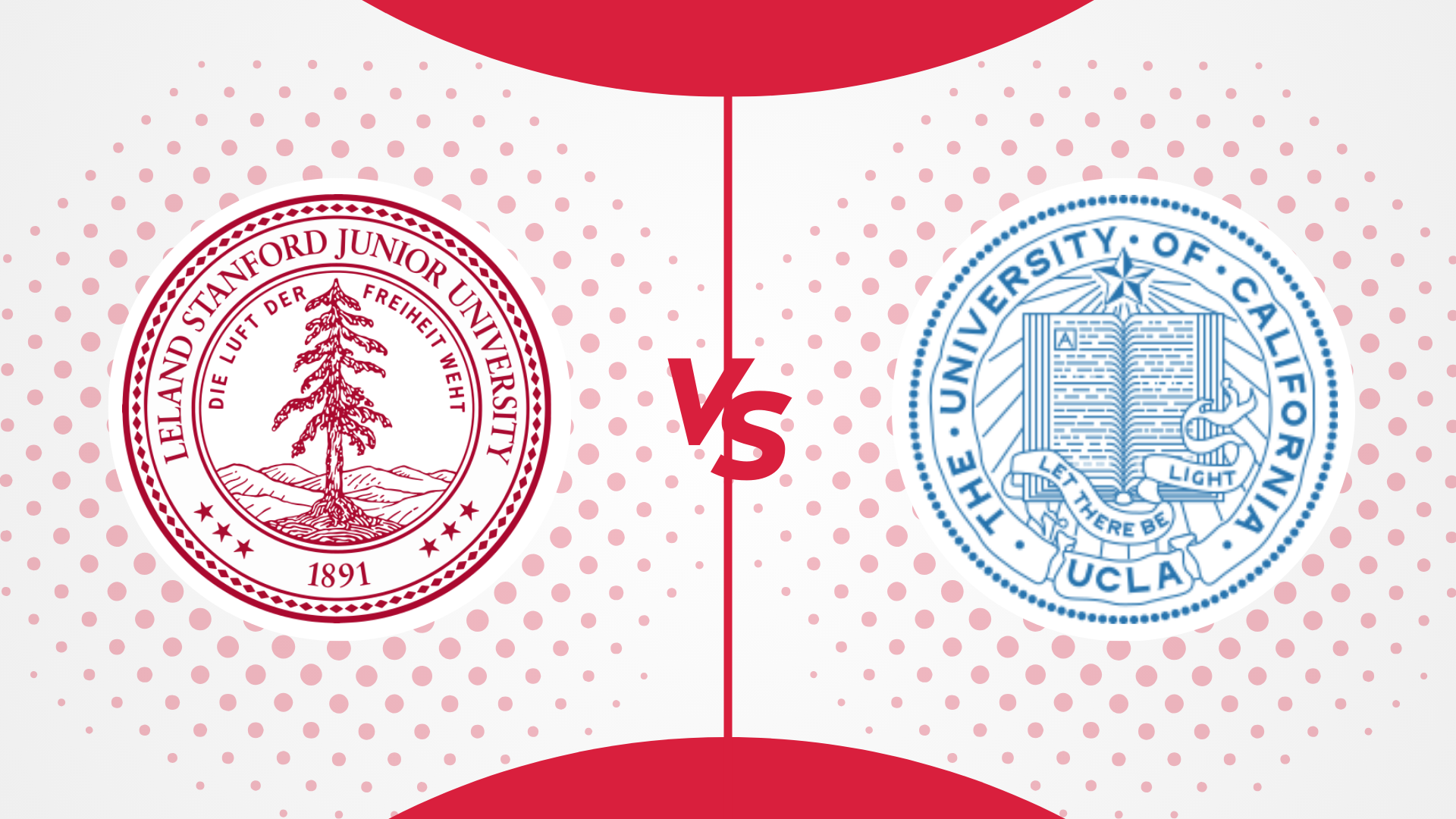
Stanford vs UCLA: Which One is Better For You in 2024
June 28, 2024 -
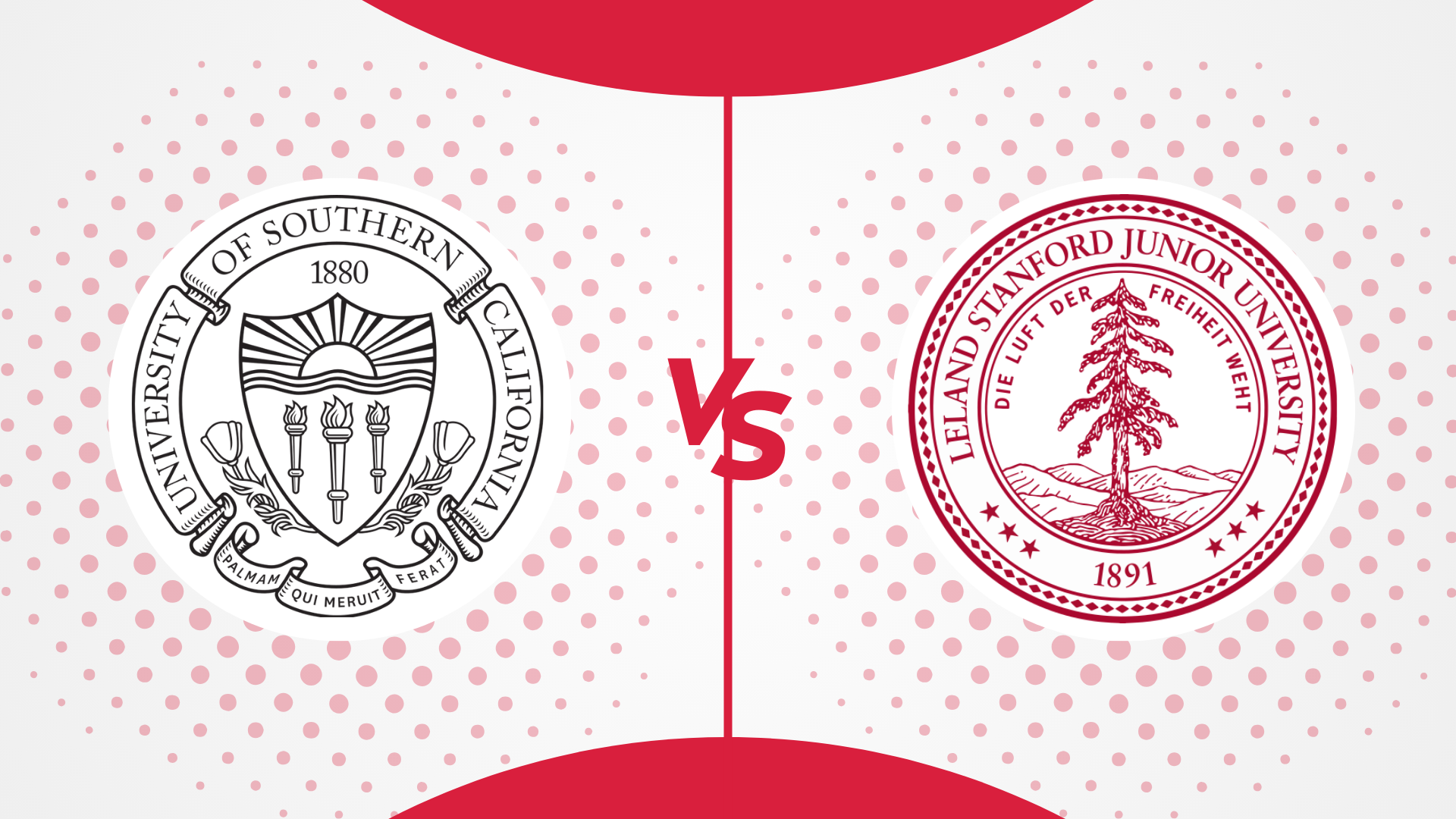
USC vs Stanford: Which One is Better For You in 2024
June 28, 2024 -
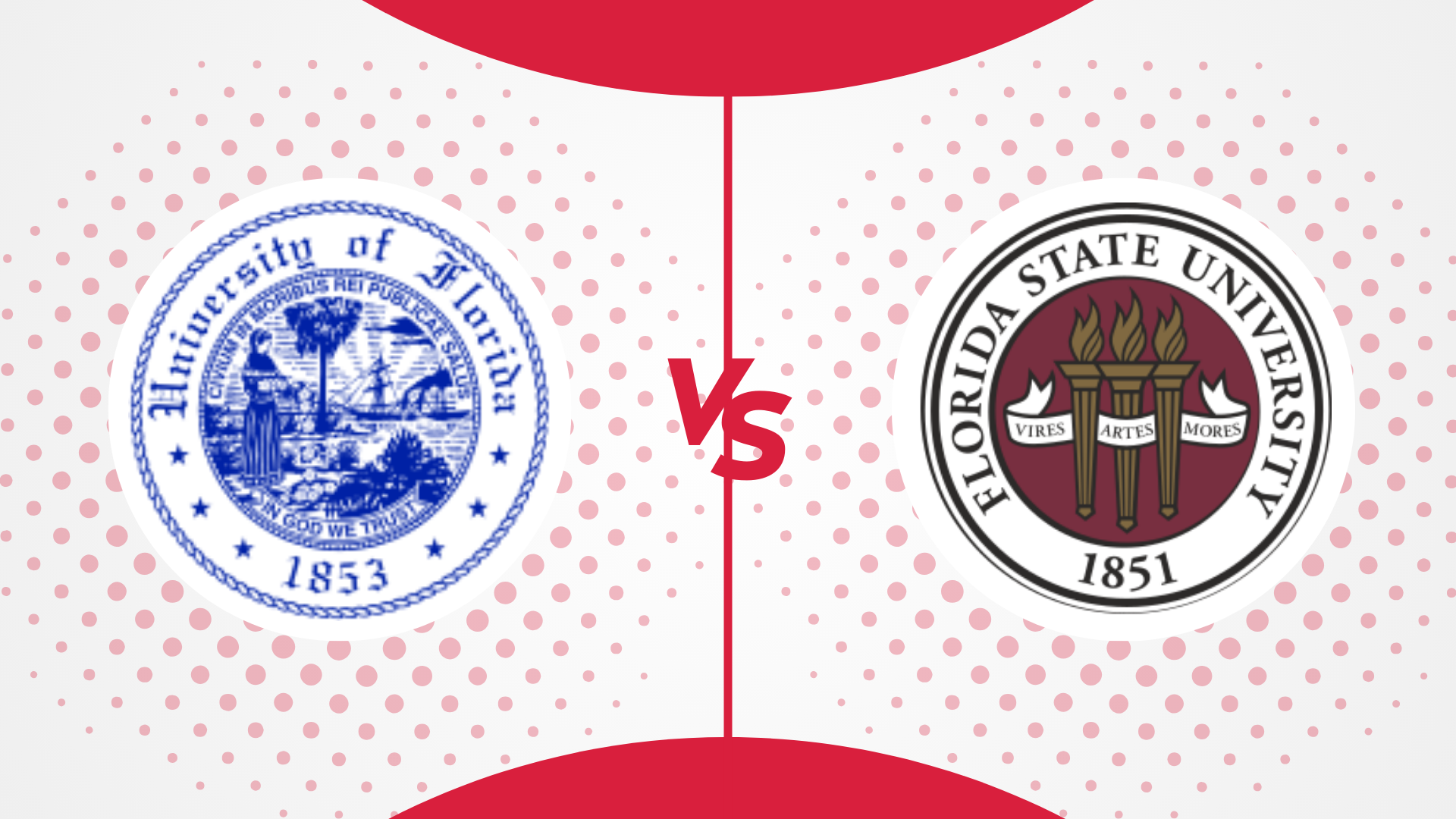
University of Florida vs Florida State University: Which One is Better For You in 2024
June 28, 2024 -

NYU vs Columbia: Which Is Better In 2024?
June 28, 2024 -

Princeton vs Columbia: Which Is Better In 2024?
June 28, 2024 -

NYU vs Cornell: Which One Is Better In 2024?
June 28, 2024 -

Boston University vs Northeastern: Which one is best in 2024
June 28, 2024 -

NYU vs UCLA: Which Is Better For You In 2024?
June 28, 2024














